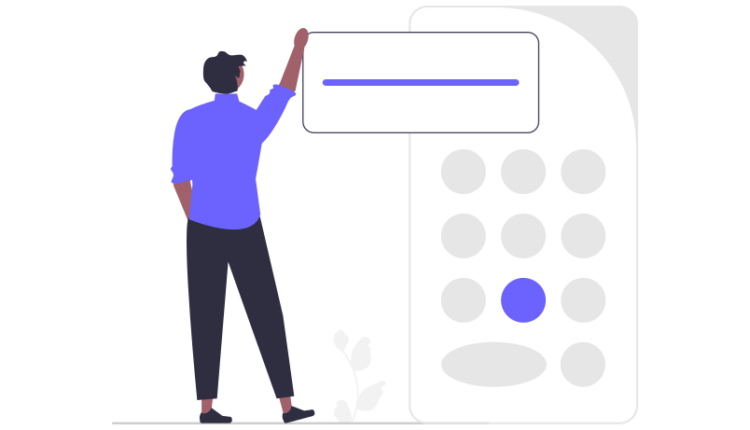Are you entangled in the debate between Ad Exchange and Adsense? Are you having trouble deciding which platform will maximize your ad revenue? Well, you’re where you need to be. In this post, we’ll help you comprehend the key distinctions between Google AdSense and Ad Exchange while demystifying the world of digital advertising. We have you covered whether you’re a seasoned publisher or a beginning blogger.
Adsense vs Ad Exchange: The History of Advertising
The Birth of DoubleClick
Let’s go back to the final decade of the 1990s. DoubleClick first appeared in 1996 as a stand-alone company that provided ad-serving services. Fast forward to 2008, when Google purchased DoubleClick for a hefty $3.1 billion. The aim? is to establish a prosperous advertising ecosystem that benefits publishers, advertisers, and agencies equally. DoubleClick for Publisher (DFP) and DoubleClick Ad Exchange were created as a result of this transaction.
The Rise of AdSense
Google, meanwhile, unveiled AdSense in June 2003. Publishers immediately began to favor this service. Why? Because AdSense provided publishers with a cost-free and user-friendly solution to display adverts on their websites. It turned out to be the standard option for small- to medium-sized publishers.
The twist is that AdSense and Ad Exchange have distinct objectives. Ad Exchange (also known as AdX) acts as an ad exchange network, whereas AdSense serves as an ad network. These distinctions set the scenario for our battle between Adsense and Ad Exchange.
What are Adsense and Adx Exactly?
AdSense: Think of it as a DIY platform for running ads. Once AdSense approves your website, you’ll receive ad tags to place on your site. However, AdSense tends to favor advertisers, as the ads are sourced from Google Ads (formerly AdWords), designed for cost-effective impressions. Publishers also have limited control and can’t set floor prices.
AdX: This is the heavyweight champion, an ad exchange network that unites publishers, advertisers, and agencies. AdX focuses on real-time bidding, private auctions, and preferred deals. It fuels competition among advertisers, leading to higher earnings for publishers.
Now that we’ve laid the foundation, let’s dive deeper into the differences between these two advertising giants.
How to Get Started with AdSense?
Getting started with AdSense is a breeze. Visit the AdSense webpage, sign in with your Google account, submit your website details, and await approval. Once approved, simply copy the provided ad tags and insert them into your website’s code. AdSense handles everything from ad placement to payments.
How to Get Started with AdX?
AdX, on the other hand, is a bit trickier. It requires a minimum of 5 million monthly pageviews, among other eligibility criteria. Publishers also need a Google Ad Manager account and must wait for approval. Alternatively, you can access AdX through a Google Certified Publishing Partner, like AdPushup. This partnership offers access to AdX and demand partners.
Note: By using Google Ad Manager, publishers can run AdSense and AdX together, enhancing competition within their inventory.
Differences between AdSense & Ad Exchange
- With AdSense, Google takes the reins in managing the ads on your website. Publishers can make some adjustments, like changing ad sizes and types, but have limited control. AdSense also lacks the option to set a floor price.
- AdX, in contrast, requires publishers to manage their inventory actively. They set floor prices for auctions, engage in preferred deals, and have complete control over ad units on a page. AdX offers greater customization, making it ideal for publishers with specific needs.
Google Ads Payment Methods: Which One Offers More?
- AdSense and AdX follow different payment schedules. AdSense initiates payments once publishers reach the minimum threshold, with a processing period of approximately 21 days. The actual payment arrives 5 to 7 days later.
- On the flip side, AdX credits payments by the end of the month once the threshold is met. In terms of revenue generation, it’s tough to pick a winner, but data suggests AdX often outperforms AdSense.
Comparing Control: Which Ad Platform Offers Greater Control?
- When it comes to control over ad inventory, Ad Exchange takes the lead. It empowers publishers to manually place ads and set floor prices. They can even sell directly to specific advertisers or brands, aligning with their business strategy. AdSense lacks this level of control.
- However, it’s essential to weigh the benefits against the effort required. Ad Exchange demands more time and expertise for effective management, so consider your resources before making a decision.
Ease of Use and Technical Expertise
- AdSense boasts a user-friendly interface, perfect for beginners. It’s easy to set up and manage, making it accessible to publishers of all levels.
- AdX, on the other hand, can be challenging for novices. Its complexity might necessitate the involvement of an AdX partner or an advertising operations expert. Large-scale publishers with the resources to support AdX might find it worthwhile.
What Should You Choose?
The million-dollar question: AdSense or AdX? The answer depends on your unique circumstances.
- Who should go for AdSense?
AdSense is ideal for publishers with fewer page views, small to medium-sized businesses, limited time, and technical expertise. Its simplicity and automatic ad serving make it a great starting point.
- Who should go for AdX?
AdX shines for large publishers with substantial page views who can manage ad placement and monetization effectively. It’s also an option if you gain approval to join DoubleClick. However, AdX can be complex, and some publishers may require third-party assistance.
Frequently Asked Questions:
Q1. What is Google AdX?
Real-time bidding on ad spots is made possible through the ad exchange network known as Google AdX, sometimes known as DoubleClick Ad Exchange. It serves as a platform for programmatic advertising that links publishers, advertisers, and agencies.
Q2. What is Google AdSense?
Publishers who wish to commercialize their online material can do so using the Google AdSense advertising network. Based on content and audience type, it matches advertisements to a publisher’s website.
Q3. Why is AdSense popular among publishers?
The popularity of AdSense is due to its accessibility and user-friendly interface. It is a popular option for small and medium-sized publishers because it is a free service that makes ad placement and management simpler.


